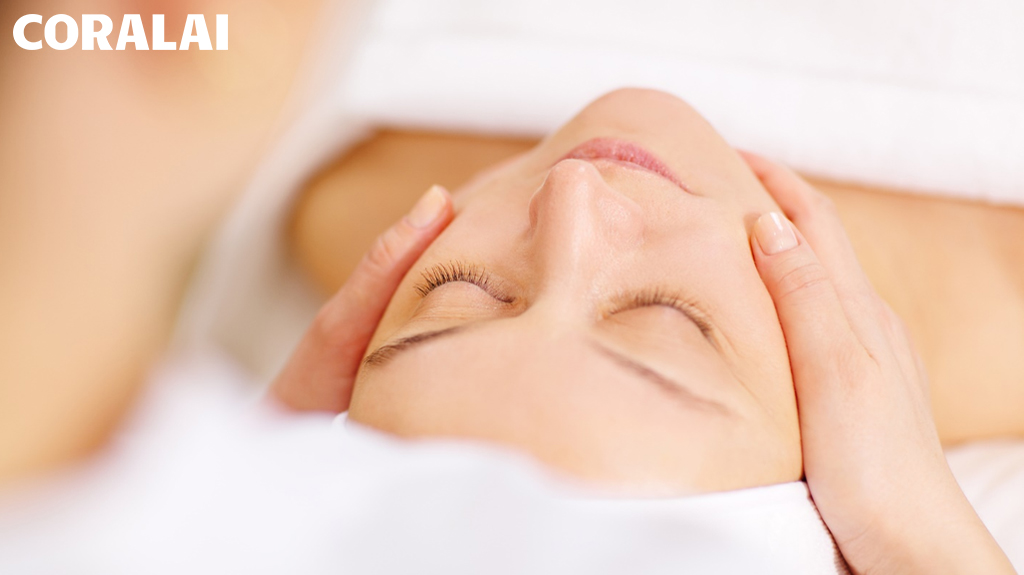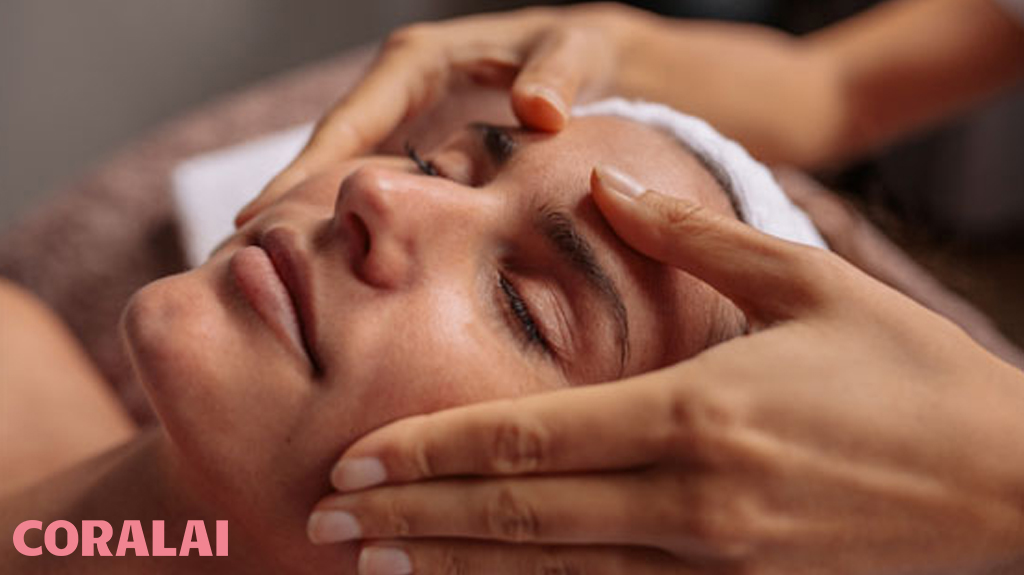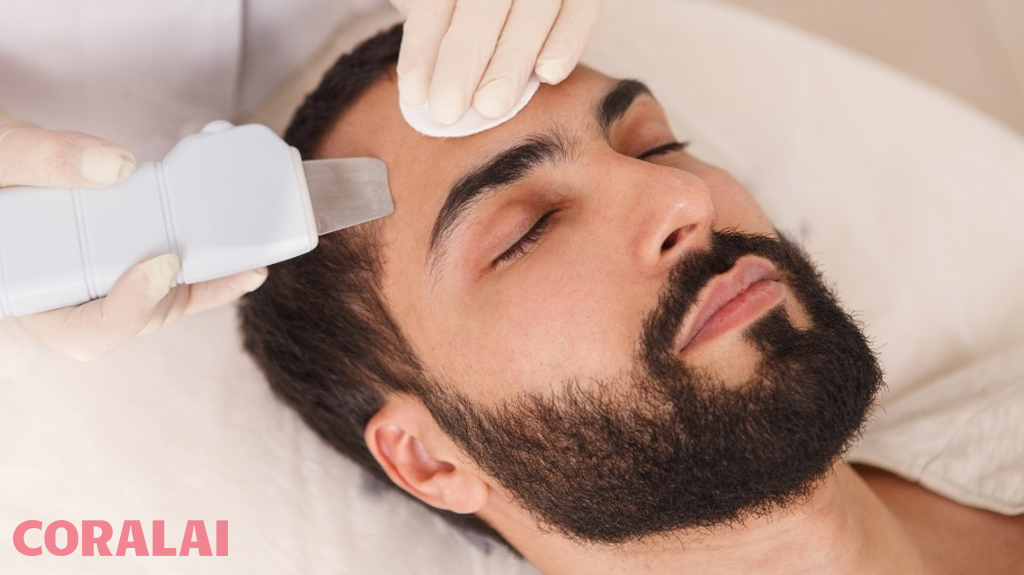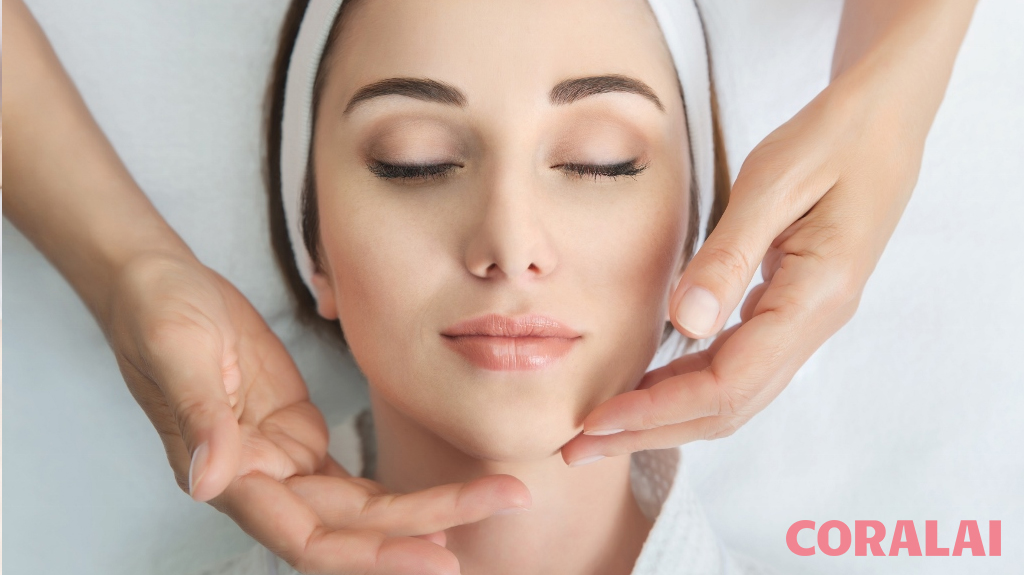Oncology Facials and Skincare – What to Consider During Breast Cancer Awareness Month & Beyond

In honor of October being breast cancer awareness month, we wanted to take a closer look at topics such as the safety of treatments and ingredients, getting expert advice and how to stay connected. There are numerous questions you might have as someone living with cancer prior to receiving an oncology facial and skincare treatments, like “how will I know if my skin is safe? Or, “what are the best products for my face?” Another thought, “how do I eliminate the acne that developed with my treatment?”
These are all fundamental questions, and they deserve a good answer.
The first thing you should understand is that certain ingredients in some skincare products can cause damage to your skin if you have been diagnosed with cancer or are undergoing treatment for cancer.
The second thing you should know is that many products contain good ingredients that help make your skin look healthy and fresh after undergoing treatments like chemotherapy or radiation therapy.
So these two facts together mean that there are products for people with active cancers (including breast cancer)! You have to know what ingredients not to use and which ones you can use safely.
And that’s where our esthetician & beauty expert comes in. You can get the best product recommendations and expert advice on Coralai. We have a certified oncology aesthetician as part of our network of Coralai skincare professionals. Read more about Lashelle Ullie.
What is Oncology Facial Care?
Oncology facial care is the practice of providing safe facial and body treatments to clients who are undergoing or recovering from cancer treatment.
Oncology facial includes choosing the right ingredients that will not interfere with any medications or treatments, understanding the various types of cancer treatment and side effects, and how they can be alleviated through esthetic services.
How to Do Oncology Facial Care?
Facials are a great way to maintain healthy skin, reduce stress levels, and help you feel more confident about yourself and your appearance.

But there are some things that you should know when it comes to oncology facials and skincare. First, you might reconsider having your usual esthti do the treatment—your regular esthetician may not have experience working on skin affected by chemotherapy or radiation. In fact, do you know the difference between an aesthetician and an esthetician?
Instead, find a specialist who has experience with such treatments or at least does unique therapies for cancer patients.
Second, avoid any products containing Retin-A or similar ingredients used to treat acne—these can cause excessive dryness or irritation on already sensitive skin. Instead, opt for moisturizers that contain antioxidants like vitamin E or green tea extract.
Finally (and this one’s important), don’t skimp on sunscreen!
Oncology Esthetics: How Spas Can Help Cancer Patients?
Cancer treatments can cause the skin to become extremely sensitive and dry. As a result, spas are expanding to include oncology esthetics specifically designed for cancer patients.
Spas and oncology facial treatments are a great way to help cancer patients feel better about themselves, but they can also help in other ways.

For example, these procedures can be used to prevent or treat chemotherapy-induced acne, a common side effect of cancer treatment. They can also help reduce stress levels, making it easier for patients to get through their treatments.
 Spas can help cancer patients regain control and make them feel like themselves again.
Spas can help cancer patients regain control and make them feel like themselves again.  Spa services have been shown to reduce stress levels in people undergoing chemotherapy or radiation therapy treatments. The relaxing environment also helps reduce anxiety and depression associated with a cancer diagnosis.
Spa services have been shown to reduce stress levels in people undergoing chemotherapy or radiation therapy treatments. The relaxing environment also helps reduce anxiety and depression associated with a cancer diagnosis. Spa treatments can also improve moods by helping people sleep better at night or enhancing their ability to cope with the pain caused by chemotherapy or radiation therapy. They can also reduce swelling caused by lymph node removal after breast cancer surgery.
Spa treatments can also improve moods by helping people sleep better at night or enhancing their ability to cope with the pain caused by chemotherapy or radiation therapy. They can also reduce swelling caused by lymph node removal after breast cancer surgery.
Oncology Skin and Hair Care With Professionals
Dry, itchy, and even scaly skin is the most common complaint among chemotherapy patients during and after treatment. In addition, hair loss or thinning can happen with some chemotherapy treatments because chemotherapy impacts all the cells in the body.
What should you know about skincare during chemotherapy?
You can manage these conditions by changing or adding a few simple steps to your daily routine.
 Drink plenty of water(if you have not been told to limit how much fluid you take in).
Drink plenty of water(if you have not been told to limit how much fluid you take in). Use only gentle products on your skin. These are products that do not contain solid fragrances or irritants.
Use only gentle products on your skin. These are products that do not contain solid fragrances or irritants. When bathing or showering, use warm instead of hot water.
When bathing or showering, use warm instead of hot water.  Use a soft washcloth to exfoliate and gently clean skin that is extremely dry, flaky, or scaling. However, do not apply this to irritated or broken skin areas. Do not do this in your treatment area if you are receiving radiation.
Use a soft washcloth to exfoliate and gently clean skin that is extremely dry, flaky, or scaling. However, do not apply this to irritated or broken skin areas. Do not do this in your treatment area if you are receiving radiation. After drying off, always apply a deeply hydrating moisturizer. When you apply lotion to damp skin, it absorbs better.
After drying off, always apply a deeply hydrating moisturizer. When you apply lotion to damp skin, it absorbs better.  Try a moisturizer containing organic oils like coconut, sesame, or olive oil.
Try a moisturizer containing organic oils like coconut, sesame, or olive oil. If possible, apply a moisturizer several times throughout the day, including after you wash your hands and before going to bed.
If possible, apply a moisturizer several times throughout the day, including after you wash your hands and before going to bed. When outdoors or in direct sunlight, apply a broad-spectrum sunscreen with an SPF of 30 or higher to protect your skin.
When outdoors or in direct sunlight, apply a broad-spectrum sunscreen with an SPF of 30 or higher to protect your skin.
What should you know about hair care during chemotherapy?
 Be gentle with your hair. Use no chemicals that may cause hair fiber damage and additional hair loss. Avoid coloring, bleaching, and hair perming during the initial regrowth stage.
Be gentle with your hair. Use no chemicals that may cause hair fiber damage and additional hair loss. Avoid coloring, bleaching, and hair perming during the initial regrowth stage.
 When your hair is entirely regrown and shows no signs of shedding, you can use permanent or semi-permanent hair color.
When your hair is entirely regrown and shows no signs of shedding, you can use permanent or semi-permanent hair color.
 Use a conditioner to moisturize your scalp. Even if you’ve lost your hair, you can use a gentle conditioner in the shower or bath.
Use a conditioner to moisturize your scalp. Even if you’ve lost your hair, you can use a gentle conditioner in the shower or bath. Many people use castor oil to promote a healthy scalp, lash, and brow regrowth. If you do this, use organic castor oil and know that the results may vary.
Many people use castor oil to promote a healthy scalp, lash, and brow regrowth. If you do this, use organic castor oil and know that the results may vary.
The Latest Science Behind Oncology Facial and Skincare
The latest science behind oncology facial skincare is that these new products are designed to tackle contemporary issues that cancer patients face, such as drying, scaling, or skin inflammation.
Oncology skincare is not only about looking good but also feeling good. It’s all about the healing power of the skin and how it can help you feel better and more alive.

Oncology facials and skincare products are often created using ingredients like antioxidants and essential moisturizing elements. These can have several beneficial effects on increased cell repair, reduced inflammation and redness, and overall protection against environmental factors.
So, while you may still have questions about how specific products will affect your sensitive skin with newly diagnosed cancer, Coralai’s in-house skincare professional is always there to help you deal with the effects of chemotherapy and radiation.
On behalf of Coralai, we honor and support families who have lost loved ones to the fight against cancer and those who are living with or survived a cancer diagnosis. In support of Breast Cancer Awareness Month, we lean in to the National Breast Cancer Foundation, and their campaign to RISE to ensure every woman has access to the screenings she needs and the support she deserves. When we RISE, we Rally in Screening Everyone.
